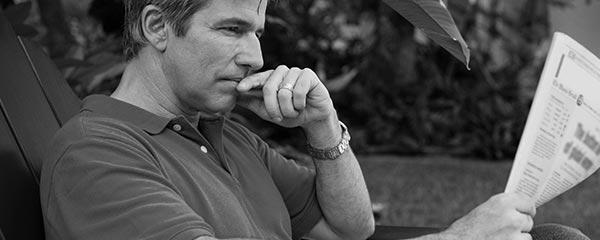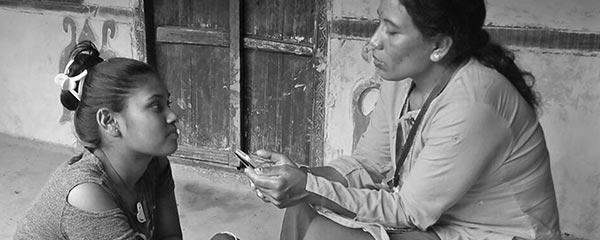The degree that the public trusts journalists varies widely across 144 countries and territories included in the . Worldwide, the percentage who express at least some trust in journalists ranges from a low of 12% in Greece to a high of 93% in Uzbekistan. Median global trust in journalists stands at 59% -- the trust level in the United States.
Median trust in journalists is notably similar in democratic and non-democratic countries -- at roughly 60%. Yet, attitudes vary significantly within these categories of political systems.
Among democratic countries -- as designated by 2017 Polity IV democracy rankings -- at least four in five respondents in Finland, Myanmar and Norway trust journalists "a lot" or "some," while fewer than one in four do so in Taiwan, Serbia and Greece. In non-democratic countries, roughly nine in 10 adults in Uzbekistan, Tanzania and Rwanda say they trust journalists, but about one in three say the same in Mauritania, Gabon and Yemen.
| Democracies** | Non-Democracies** | |||||||||||||||||||||||||||||||||||||||||||||||||||||||||||||||||||||||||||||||||||||||||||||||||||
|---|---|---|---|---|---|---|---|---|---|---|---|---|---|---|---|---|---|---|---|---|---|---|---|---|---|---|---|---|---|---|---|---|---|---|---|---|---|---|---|---|---|---|---|---|---|---|---|---|---|---|---|---|---|---|---|---|---|---|---|---|---|---|---|---|---|---|---|---|---|---|---|---|---|---|---|---|---|---|---|---|---|---|---|---|---|---|---|---|---|---|---|---|---|---|---|---|---|---|---|---|
| % A lot/Some | % A lot/Some | |||||||||||||||||||||||||||||||||||||||||||||||||||||||||||||||||||||||||||||||||||||||||||||||||||
| Median | 59 | 59 | ||||||||||||||||||||||||||||||||||||||||||||||||||||||||||||||||||||||||||||||||||||||||||||||||||
| Top 3 | ||||||||||||||||||||||||||||||||||||||||||||||||||||||||||||||||||||||||||||||||||||||||||||||||||||
| Finland | 83 | Uzbekistan | 93 | |||||||||||||||||||||||||||||||||||||||||||||||||||||||||||||||||||||||||||||||||||||||||||||||||
| Myanmar** | 80 | Tanzania | 90 | |||||||||||||||||||||||||||||||||||||||||||||||||||||||||||||||||||||||||||||||||||||||||||||||||
| Norway | 80 | Rwanda | 89 | |||||||||||||||||||||||||||||||||||||||||||||||||||||||||||||||||||||||||||||||||||||||||||||||||
| Bottom 3 | ||||||||||||||||||||||||||||||||||||||||||||||||||||||||||||||||||||||||||||||||||||||||||||||||||||
| Taiwan (Province of China) | 25 | Mauritania | 33 | |||||||||||||||||||||||||||||||||||||||||||||||||||||||||||||||||||||||||||||||||||||||||||||||||
| Serbia | 23 | Gabon | 32 | |||||||||||||||||||||||||||||||||||||||||||||||||||||||||||||||||||||||||||||||||||||||||||||||||
| Greece | 12 | Yemen | 29 | |||||||||||||||||||||||||||||||||||||||||||||||||||||||||||||||||||||||||||||||||||||||||||||||||
| **Democratic political system calculated using the 2017 Polity IV score of 7 or higher. Myanmar does not meet the threshold for democracy in most other political system indexes. *Six countries/territories are missing a Polity IV score in 2017 (Bosnia and Herzegovina, Iceland, Malta, Kosovo, Palestinian Territories and Northern Cyprus). | ||||||||||||||||||||||||||||||||||||||||||||||||||||||||||||||||||||||||||||||||||||||||||||||||||||
| Wellcome Global Monitor, 2018 | ||||||||||||||||||||||||||||||||||||||||||||||||||||||||||||||||||||||||||||||||||||||||||||||||||||
Trust in journalists is also not associated with media freedom as measured by Reporters Without Borders. In fact, the relationship between trust in journalists and media freedom is weak and goes in the opposite direction that may be expected, where greater media freedom is associated with less trust.
Political Polarization and Trust in Journalists
The significant variation in trust of journalists across countries raises an important question about why some societies appear to trust journalists more than others. Two potential factors -- democracy and media freedom -- appear unrelated to societal trust in journalists.
Another potential source of distrust in journalists is political polarization. In the United States, trust in the mass media, broadly, has fallen from 68% in 1972 to 41% today. Similarly, a recent �鶹��ýAV-Knight report found that trust in U.S. local media declines for people who perceive a large gap between their political ideology and the perceived ideology of local news organizations. While trust in the media and trust in journalists differ, the two concepts are related enough to suspect a relationship between political polarization and trust in journalists may exist around the world.
Political polarization -- measured as the extent to which differences of opinions on major political issues in society exist by country-level experts and part of the project -- is strongly associated with less trust in journalists.
As the graph shows, the more politically polarized a country is, the less trust the public tends to have in journalists. A one-percentage-point shift toward less political polarization on a five-point scale is associated with an average 5.6 percentage-point increase in the population expressing "a lot" or "some" trust in journalists. This effect persists when controlling for the political system, media freedom and GDP per capita.

Importantly, political polarization is not strongly associated with trust in other members of society asked about in the Wellcome Global Monitor study, such as neighbors, scientists, doctors or traditional doctors. However, polarization is strongly related to trust in government. Political polarization appears to affect trust in journalists related to the tangible relationship between media and politics.
While the relationship between political polarization and trust in journalists is robust, it remains unclear whether greater political polarization causes less trust in journalists. Journalists may experience reputational damage for covering contentious issues as neutral arbiters, but it is also possible that journalists are active participants in the political arena. Similarly, the media and journalists may contribute to greater political polarization by generating and amplifying contentious narratives supported by policy proponents.
Implications
Trust in journalists is complicated. A high level of trust may mean the media and journalists are doing a good job, or it may indicate an acceptance of false narratives by society. In contrast, a trust deficit may mean society is "woke" or it may indicate excessive cynicism that portends an acceptance of a post-truth reality. Regardless, a low level of trust can pose a danger because it erodes the media's and journalists' ability to operate as the fourth estate that holds power accountable and promotes civic discussion.
In recent years, observers have noted an apparent swing in the pendulum toward a crisis of trust in formal institutions. This trust deficit in economic and political institutions appears to be related to political polarization. Greater polarization is also associated with less trust in journalists. As political division grows, the news media and journalists willingly or unwillingly become participants in the political fray. Reporting on contentious topics and attempts to hold powerful interests accountable can lead to accusations of media bias. In such deeply polarized societies, citizen skepticism about journalists' motivations grows, which likely affects general trust in journalists.
In turn, countries with high political polarization and low trust in journalists face an additional challenge to healing societal divisions and challenging wrongdoing. Journalists without social capital are less able to function effectively as credible truthtellers needed for informed public discourse.




